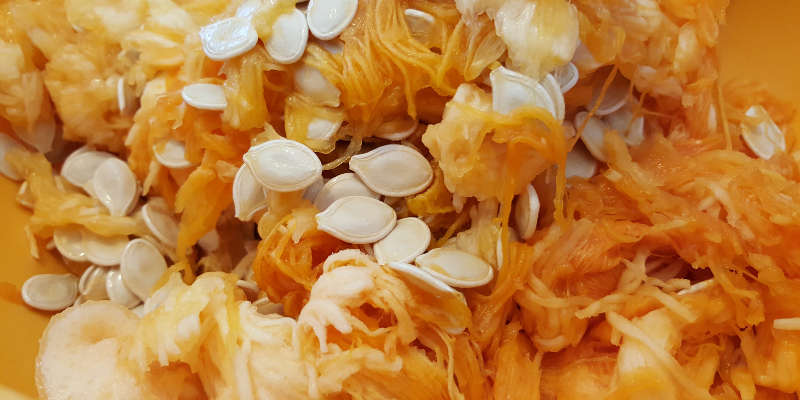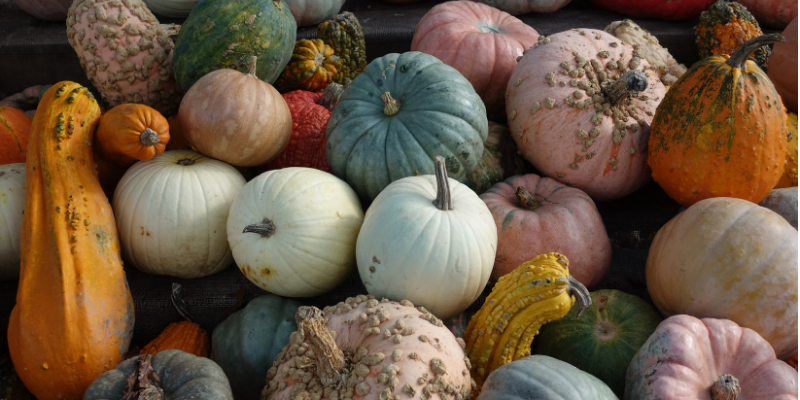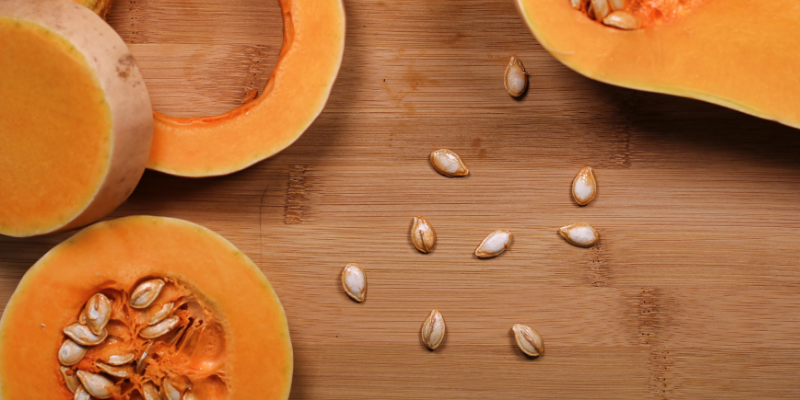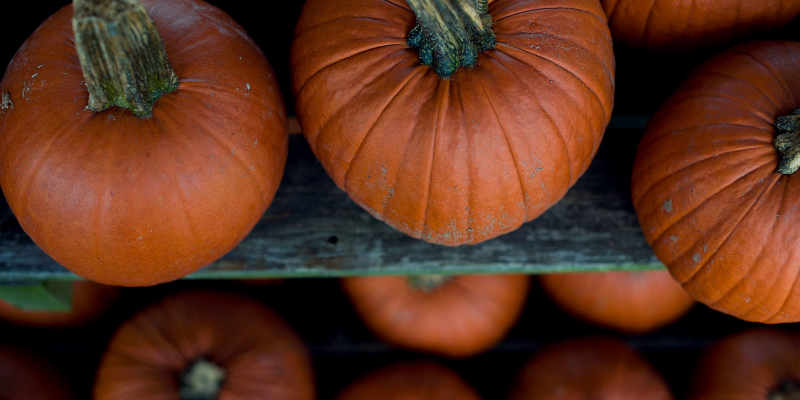People ask us all winter long if they can save the seeds they scoop out of winter squash to sow next season.
Which gives us such hope for the world!
Humbling yet true: we are gently discouraging you from saving your squash seeds to plant next season, unless you’re growing the squash yourself and paying a great deal of attention. We’ll share why (and how to pay attention!) in a moment.
First, here are the three things we can recommend without reservation:
1. Toast and eat them, see our recipe below!
2. Make squash seed roofs on gingerbread houses.
3. Stick them on peanut-buttered pinecones for the birds.
So yes, it’s true, we don’t really recommend saving your squash seeds to sow next season, unless you know a great deal about its life story. Or are entirely unattached to the fruits looking anything like it’s parents. (Which is one of our favorite games in the world.)
Here’s why.

Squash seeds are one of our favorite snacks. Check out our recipe inspirations below!
Why Squash Seed Usually Doesn’t Grow True to Type
Many varieties are F1 Hybrids, which won’t grow true to type when saved. If you’ve bought your squash from a grocer or even a farmer’s market, chances are good it’s an F1 Hybrid. So yes, they’ll grow, though the fruit they produce will most likely look nothing like what you’re expecting.

The seeds of most winter squash are delicious except for decorative gourds, which are poisonous.
Even if your variety is an open-pollinated and heirloom, know all squash will readily cross with other squash, in its species, up to one mile. So unless you’ve grown the squash, know it’s Latin name and are confident it was isolated up to one mile (or you hand-pollinated it), assume the seed has crossed and won’t grow true to type next season. Sigh.
If you’re up for an adventure and aren’t attached to the fruit being recognizable or delectable, save any and all seed! This is one of the ways new varieties are created in the world, which is so exciting as well as essential.
But if you’re attached to having orange jack o’lanterns and quaint acorn squash, you’re much better off sowing seed straight from the packet.
In brief, here are the two keys to keep in mind for saving seed of squash:
~ Know the genus/species of your variety! Most summer and winter squash grown in short seasons belong to one of three species: Curcurbita pepo, C. maxima and C. moschata. Pepo is the most diverse, including everything from zucchini to pumpkins, acorn to spaghetti squash, patty pan and delicata squash. And more!
~ Varieties sharing a species will cross up to one mile, requiring ‘isolation’ to maintain seed that is ‘true to type.’ This isolation can be achieved with distance (check in with your neighbors!) or hand-pollination, which I’ll share more about in another post. It’s my favorite way to paint

So yes, savoring your squash seeds rather than saving them may be the highest and best use of all the winter squash seeds you scoop this season! They are packed with protein and high-quality oils, plus scores of vitamins and minerals.
Here is the recipe we use:
Roasting Winter Squash Seeds
Rinse your winter squash seeds thoroughly, removing all pulp possible. Delicata to pumpkin, butternut to hubbard: each one unique, each one delicious!
Optional and AWESOME: For the most crunchy yet melt-in-your-mouth seeds, soak them in a salty brine (2 teaspoons of salt per cup water) 12 to 24 hours prior to toasting. It seems superfluous, and sure it requires a touch more planning, but trust me: the results will ensure you never skip this step again! Thanks to our friends at Stony Brook Wholehearted Foods for sharing their delectable brilliance with us.
1. Set oven to 350 F
2. Toss each half cup of seeds with one teaspoon of oil
2. Add salt, pepper and seasonings to taste
3. Spread in a single layer on a baking sheet.
4. Roast for ~20 minutes, til seeds are golden and starting to pop. stirring them once or twice to ensure even roasting.
Here are a few of our favorite seasonings:
– Rosemary
– Curry
– Herbs de Provence
– Red pepper flakes + maple
– Zaatar (ground sesame, thyme + sumac)
We love saving seeds, let us count the ways!
Sow Seeds & Sing Songs,

and the Many Beings of Fruition


you are truly a wonder – wish we lived next door – love reading all your advice and suggestions.
Char
So MUCH LOVE! Hope to see you here on the farm one day :)- Heather & The Fruition Crew
This is my first garden so I enjoy your advice so much. Praying I have success
Hi Theresa, Thanks for being a part of the Fruition community. Feel free to email support@fruitionseeds.com should you wish to reach out any time in the future. Thanks for growing with us!
Melissa
Loved this blog post very informative stuff
Where to buy sunflower oil